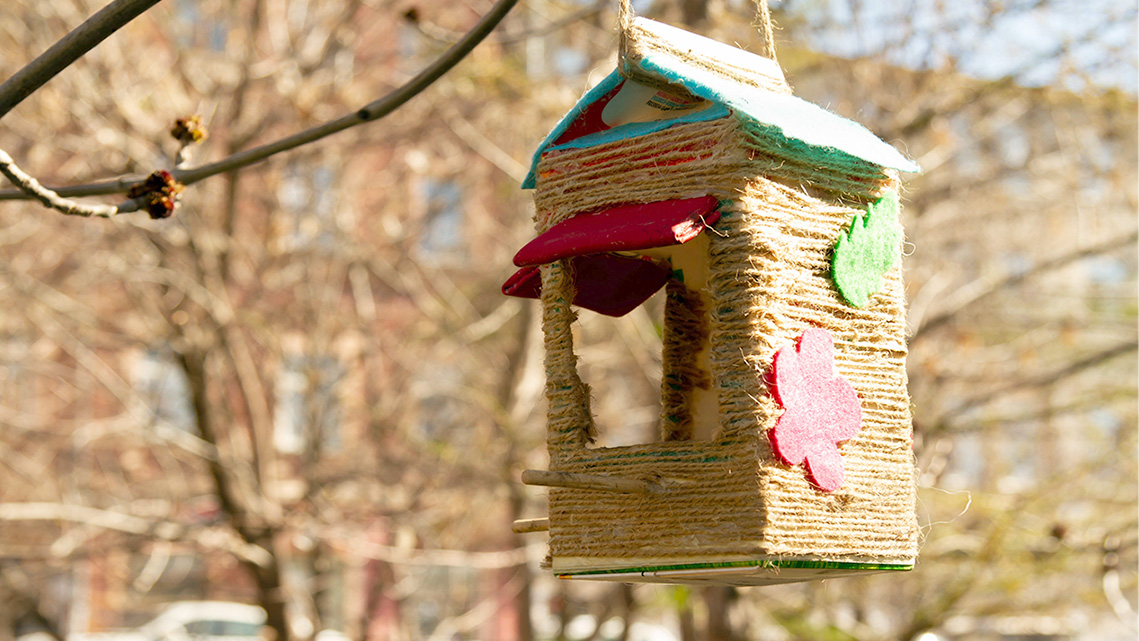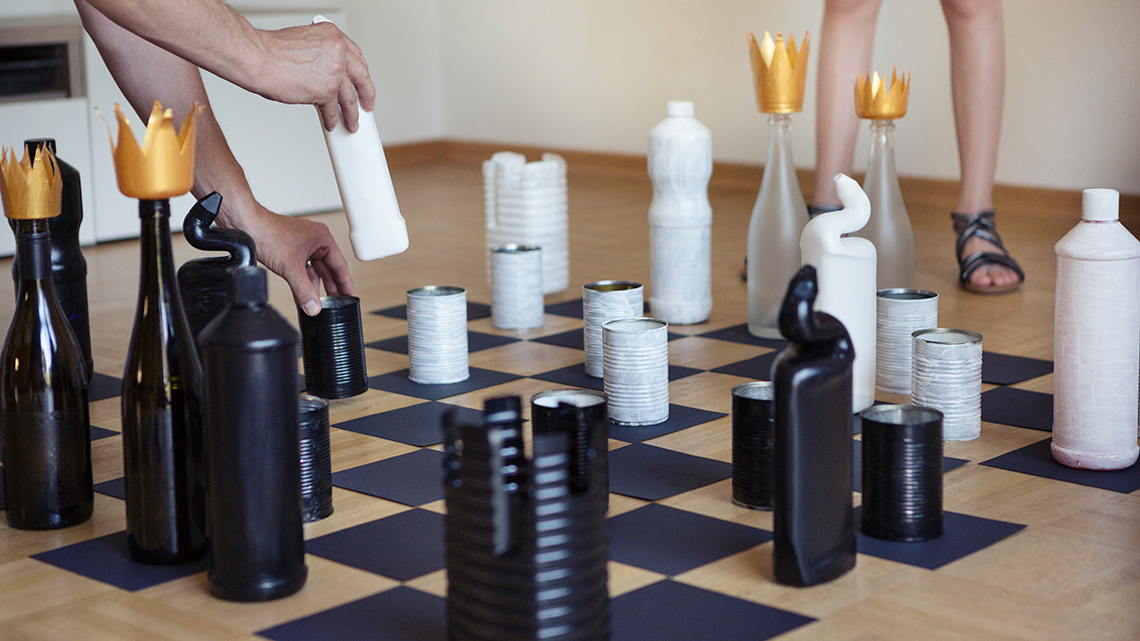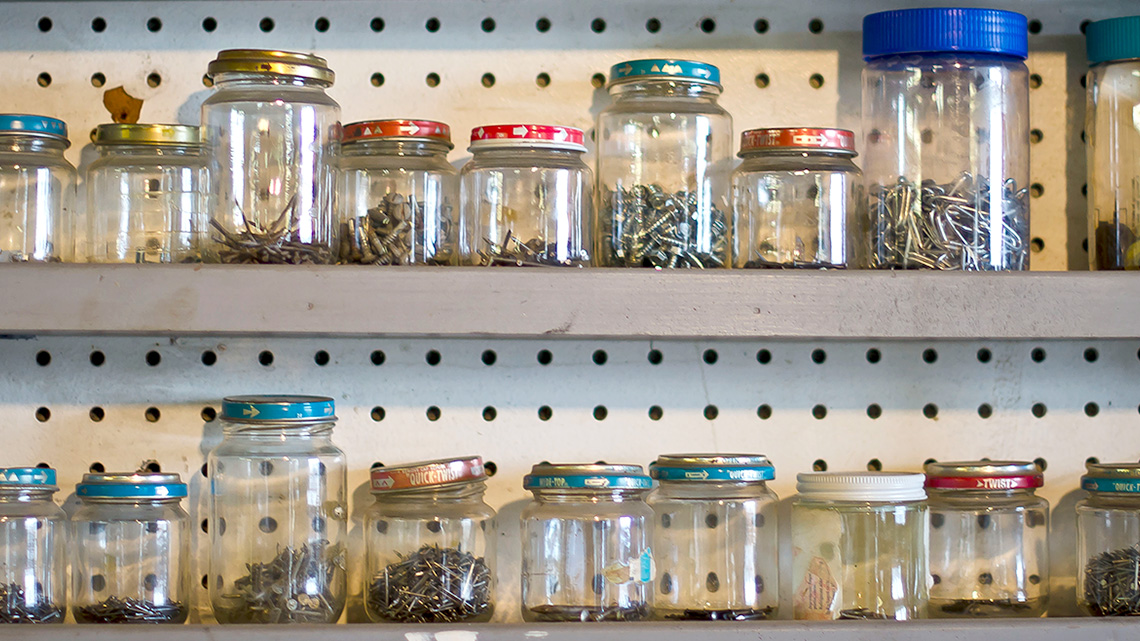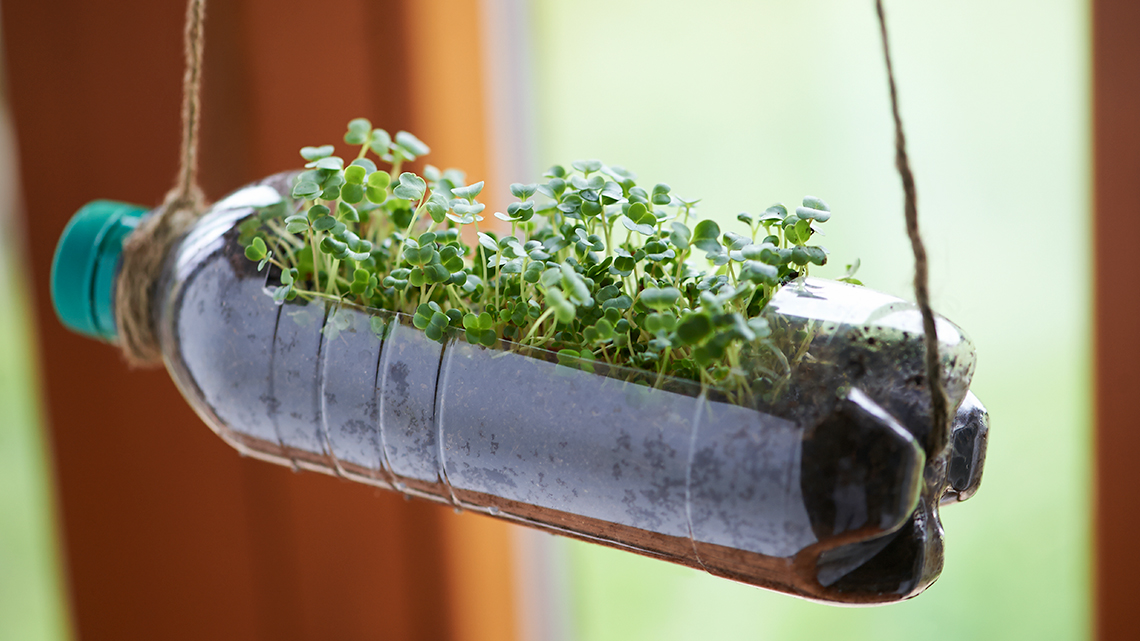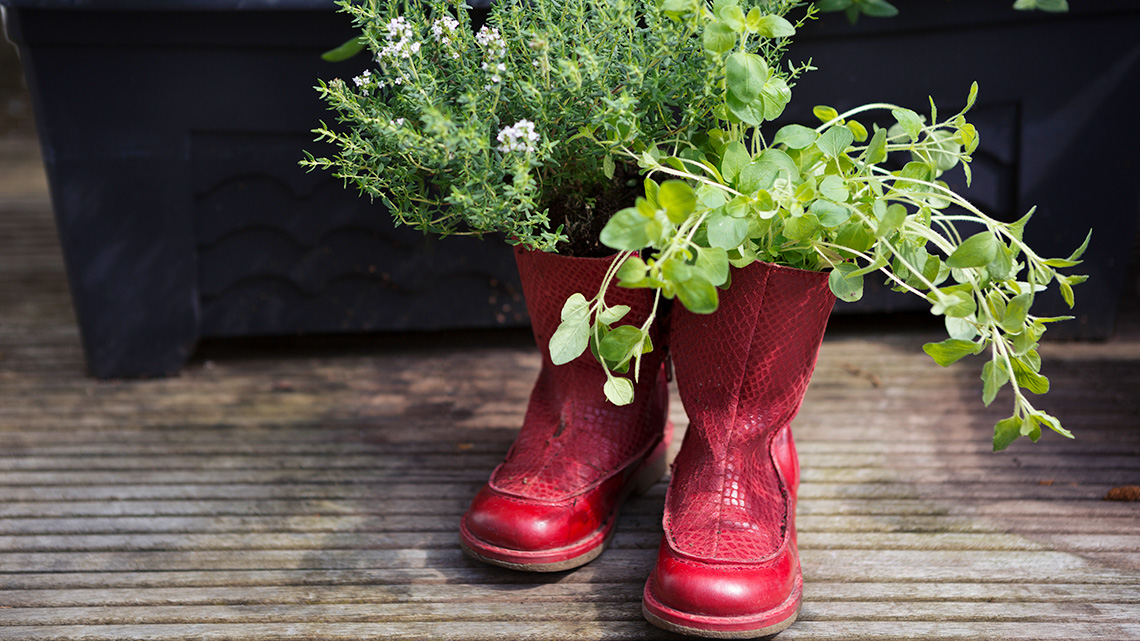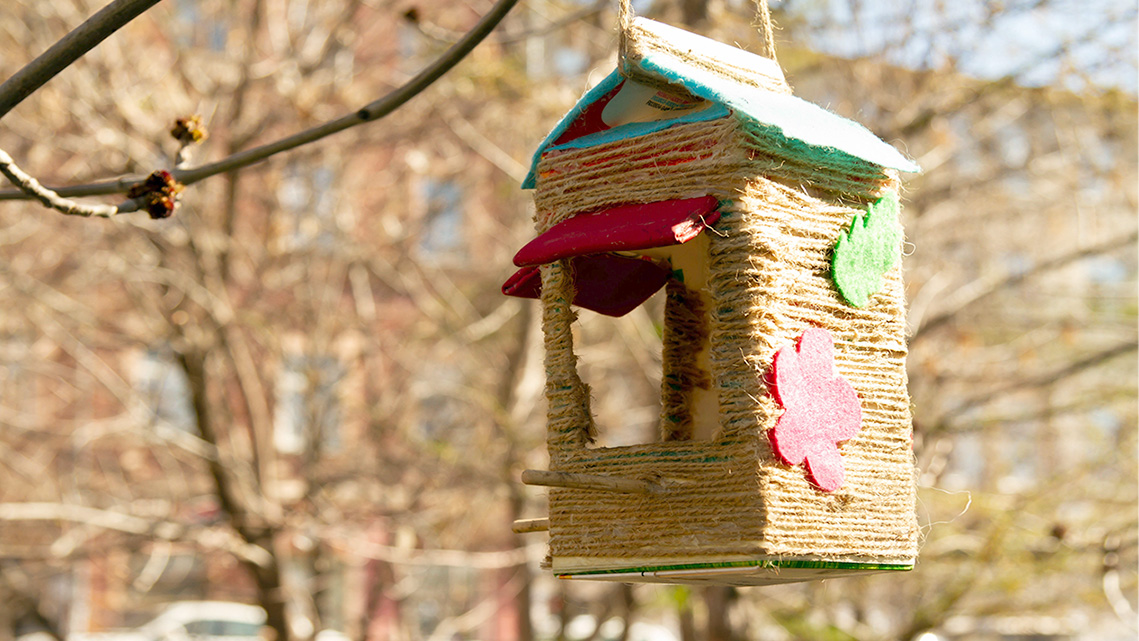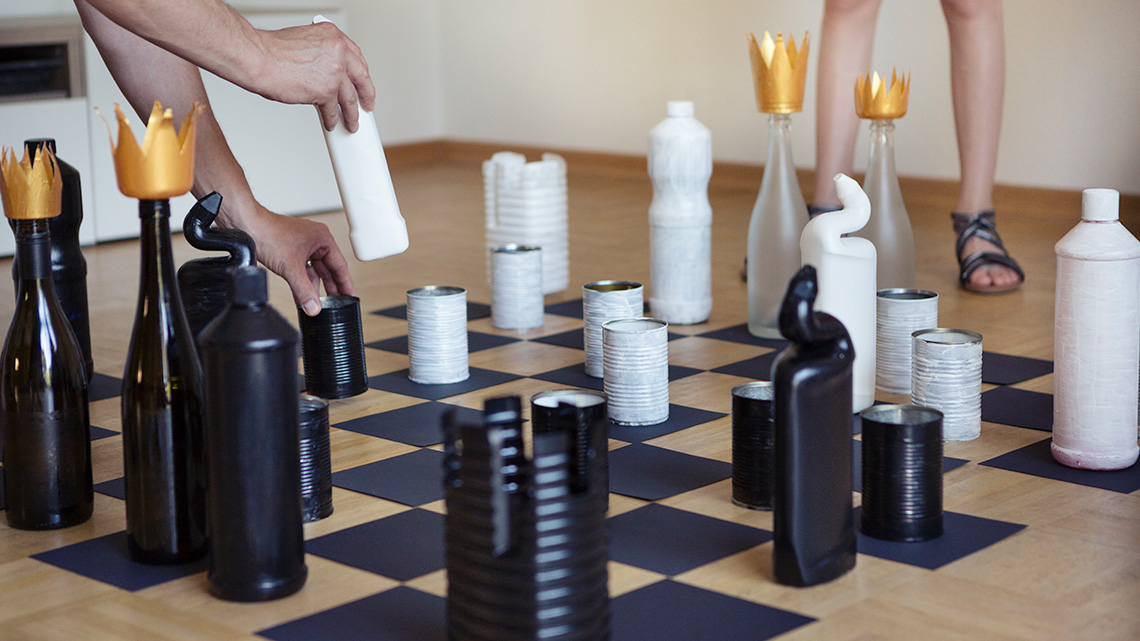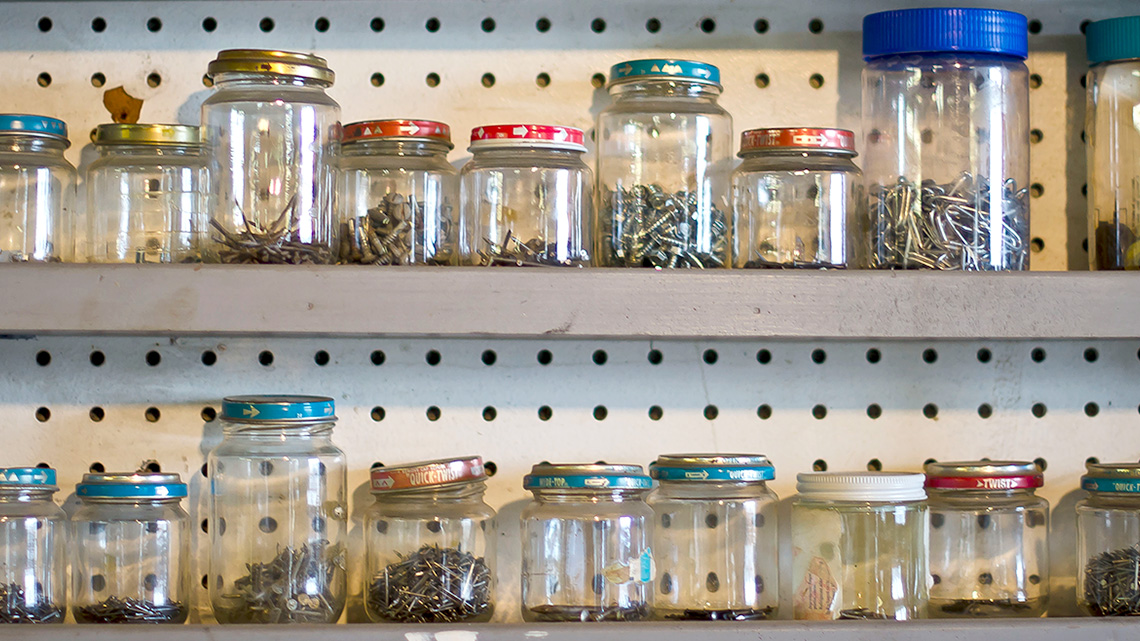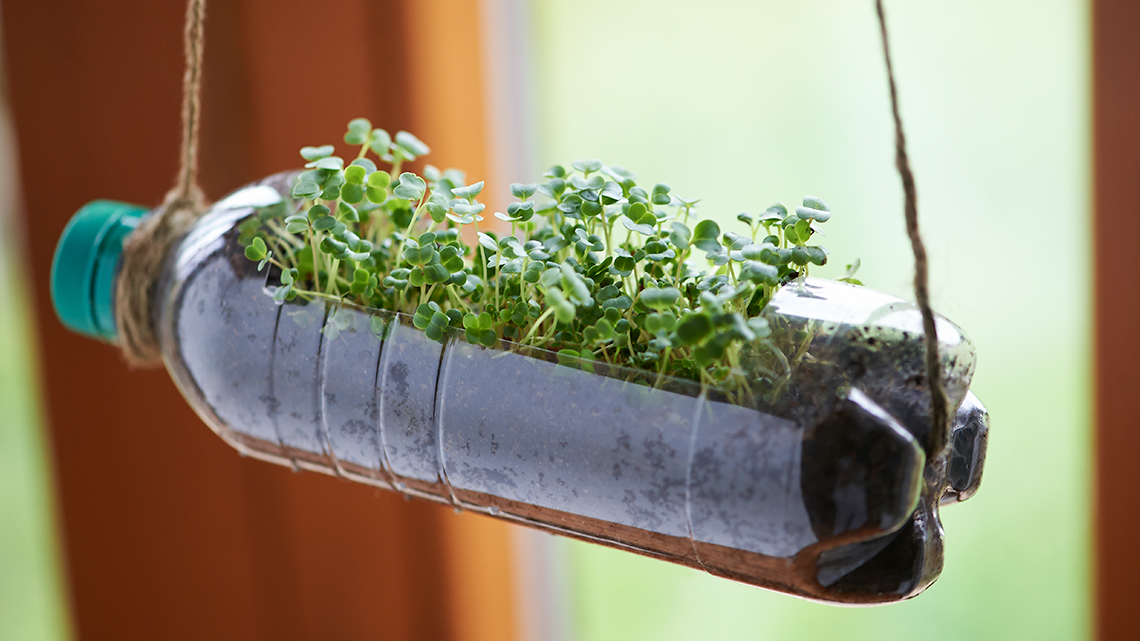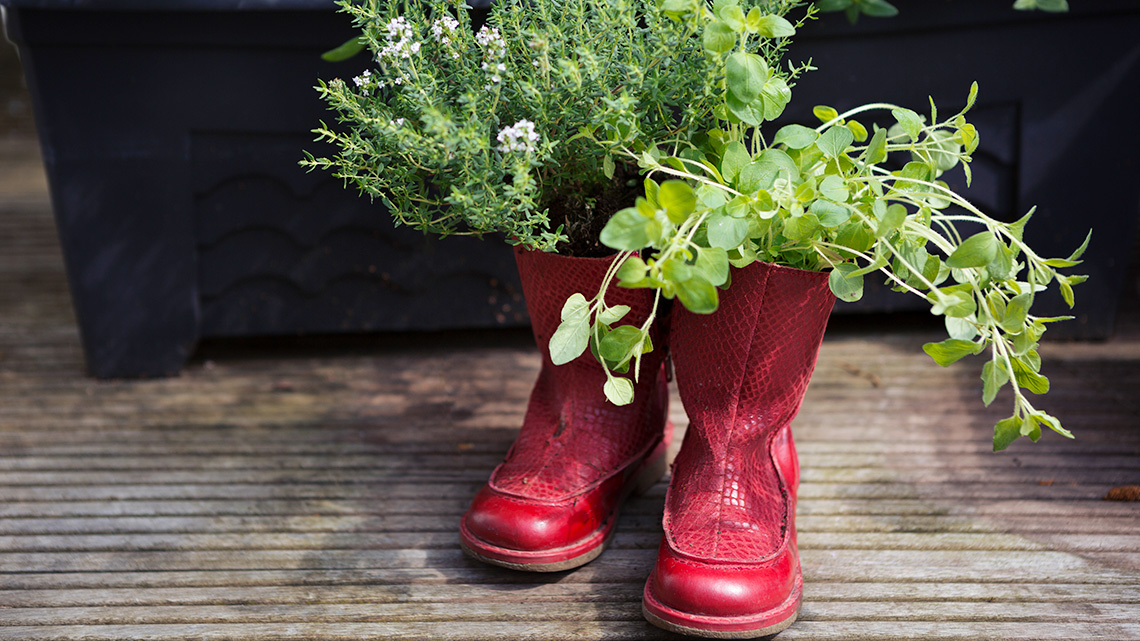Minds On
Science is everywhere!
Explore the following images and descriptions of items that might be found in the community.
What do you notice about these items? What do you wonder?
Record your ideas on the computer, on paper, in a recording, or share with a partner, if possible.
Action
How do we manage solid waste?
People create all sorts of solid waste, also known as garbage or trash.
Solid waste can be plastic bags, food waste, tissue boxes, leaves from a yard, or old kitchen appliances.
So how do we manage solid waste?
Let’s explore the ways communities can sort solid waste.
Explore the following three categories.
Helping the environment
It is important to sort solid waste products.
Press the following tabs to learn why managing waste can help the environment.
Diverse communities are able to recycle different items. For example, some communities can recycle Styrofoam while other communities are not able to!
What is upcycling?
Did you know that people can use garbage waste to make a new item? This is known as upcycling.
Let’s return to the images and descriptions from the Minds On. For each image, record:
- What item is being upcycled?
- What is the item being used for now?
Record your answers on the computer, on paper, in a recording, or share with a partner, if possible.
How does upcycling help the environment?
Press ‘Hint’ to explore a guiding question!
Why is it important to reuse items?
Now that we have explored how communities can manage waste, let’s think about how scientists can help to solve problems in the real world.
Science and research
Scientists need to do research so they can investigate real world problems. Let’s explore ways that scientists do research!
How do you ask a question as a scientist?

In Science we ask questions to help us figure out what the problem is.
When noticing, scientists think about:
- what they already know or understand
- what something might mean
- where and how they can learn more
- all kinds of questions
How do you gather information as a scientist?
When reading, listening or observing, scientists:
- ask why and how?
- search for answers to their questions
- pay attention to detail
- learn from others
- record their new learning in their own way
- make sense of new ideas and observations
How do you share information as a scientist?

Sharing what you have learned lets other people know about your topic too!
When sharing I…
Ontario connection
This learning activity highlights people, places, or innovations that relate directly to the province of Ontario. Enjoy the exploration!

One teenager in Ontario, Natalie McIntosh, has found a way to manage plastic waste.
Natalie’s research question was:
What can a teenager do to help with the problem of too much plastic in our oceans?
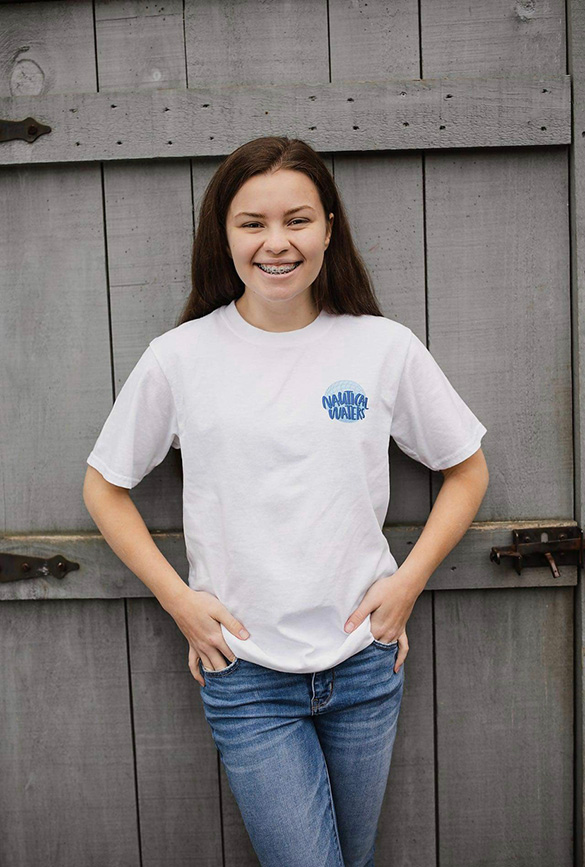
Natalie McIntosh
As part of a high school STEM (Science, Technology, Engineering, and Math) project, Natalie wanted to problem-solve the issue of cleaning up used fishing ropes from the ocean. Natalie decided to upcycle used Atlantic fishing lines and ropes.
Fishing boats pull old lines and ropes from the ocean and send them to Natalie to reuse.
Natalie then turns the rope into baskets, bird feeders, bracelets, coasters, and artwork for people to buy.
Natalie gives back the money she makes from her items to communities that are helping to protect the oceans.
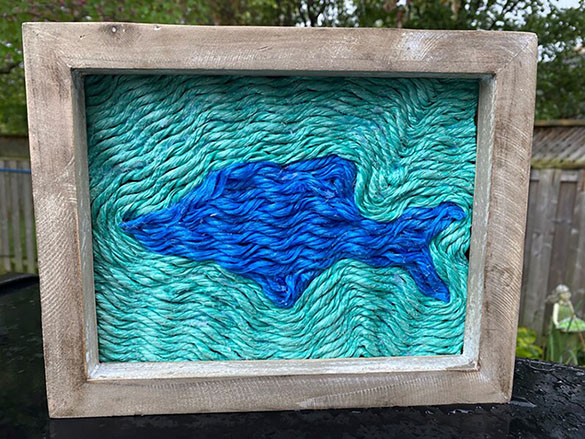
Dolphin artwork made of lobster rope
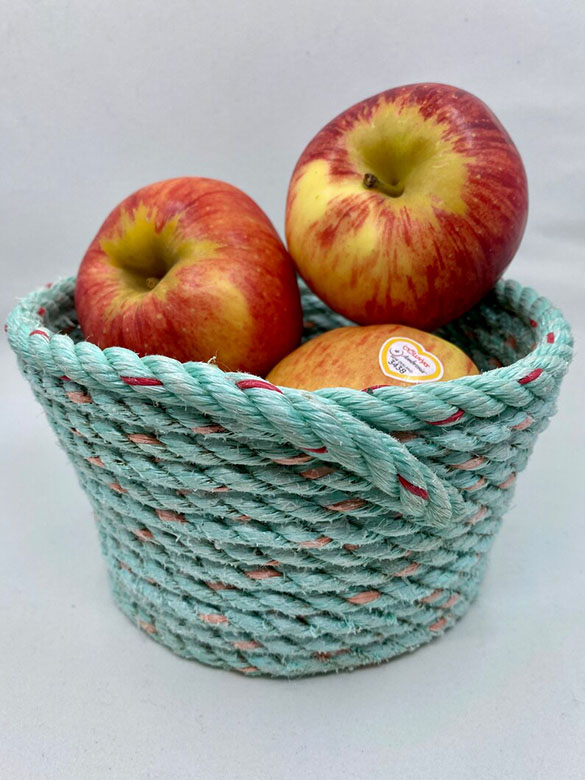
Basket made of fishing rope
When solving problems, Natalie knew that it was important to…
- think about many possible solutions
- decide how to choose a solution that she could do
- make a plan to turn her idea into action
Using the research process
Like Natalie, you can use your learning to solve a problem too.
Plastic water bottles pollute the environment and are sometimes found in the water and the forests.
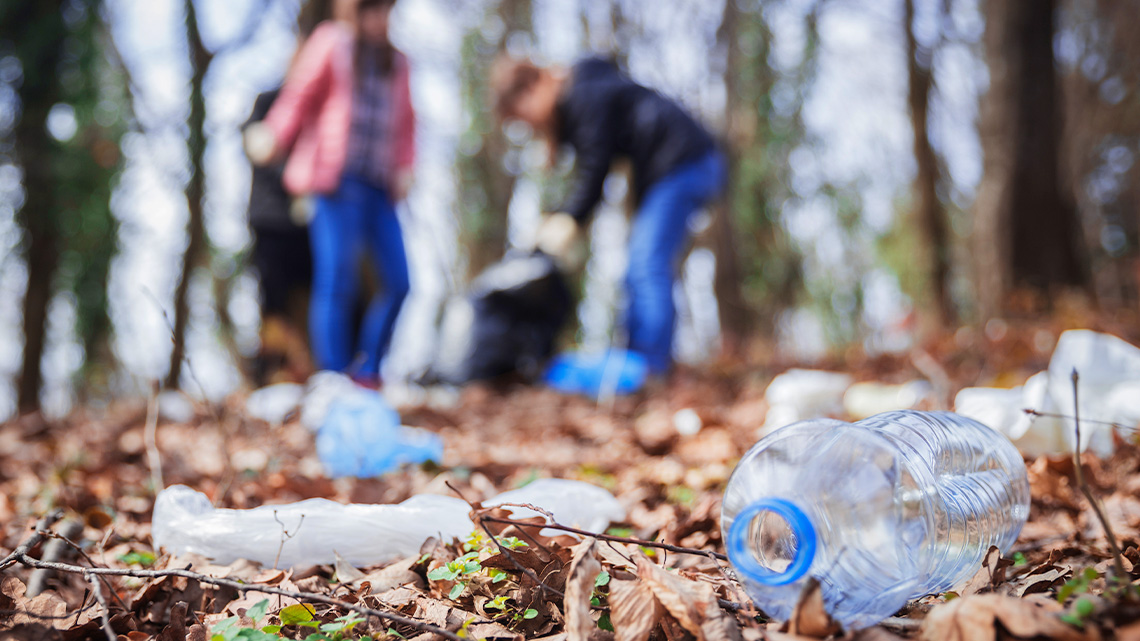
When water bottles are not recycled or reused, they can end up as litter.
How can plastic litter hurt the environment?
Can you think of a way to upcycle these water bottles? What could used water bottles become?
You can also select an item of your choice, such as a glass jar, a tin can, a plastic bag, or another item.
Use the pictures and descriptions in the Minds On section and Natalie’s problem-solving ideas to help you.
Record your idea in a method of your choice.
Consolidation
How can you reduce, reuse, recycle and upcycle?
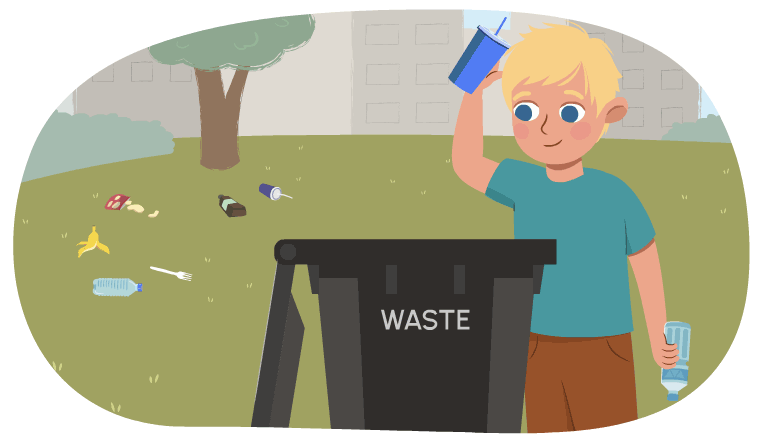
Managing solid waste in a community is very important.
In the Action section, information was shared about ways to help the environment including recycling, reusing, and upcycling items.
A community member might ask you about the important things that they can do to manage their waste in the right way.
- What will you share with this community member?
- What are three ways people can manage their waste the right way?
- How will you explain why this is important for the environment?
Record your ideas on the computer, on paper, in a recording, or share them with a partner, if possible.
Reflection
How do you feel about what you have learned in this activity? Which of the next four sentences best matches how you are feeling about your learning? Press the button that is beside this sentence.
I feel…
Now, record your ideas about your feelings using a voice recorder, speech-to-text, or writing tool.
